Executive Interviews
Our Executive Interviews feature top leaders from across the disciplines that we specialise in, sharing their career advice and experience with candidates seeking success in those sectors.
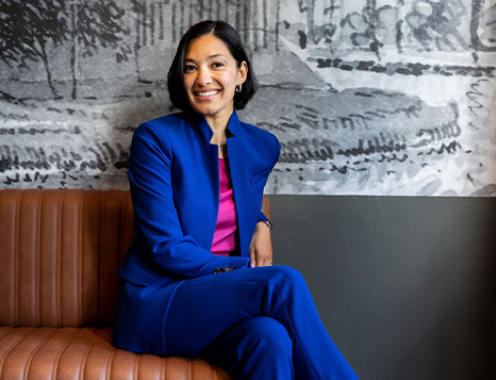
Maryana Reurings-Tsiganko - E2E Process Transformation Program Director at Pharming Group
Maryana Reurings-Tsiganko is the E2E Process Transformation Program Director at Pharming Group N.V., a global biopharmaceutical company specializing in rare and life-threatening diseases.
Speaking with Thomas Powell, Maryana offers a brief insight into Pharming’s culture and the nature of the industry. She further discusses her management approach and ethical leadership style, while also sharing standout characteristics and advice for aspiring leaders.
What’s the most rewarding part of your role at Pharming Group?
For me, the most rewarding part about working at Pharming, and within the rare diseases industry, is knowing you are doing things for a larger cause, and knowing your work is valued and appreciated by patients daily.
I have an opportunity to work with many passionate people who feel the same way and share the same mission and vision. The people are willing to go beyond their responsibilities and help their teams because they see that greater purpose. What I like the most is having an opportunity to work with a very diverse group of people that you can learn a lot from which stimulates good conversations.
Additionally, the nature of the industry requires the company to be agile and accommodating, allowing me to work in a challenging environment, and brainstorm ideas and solutions daily.
What is the most memorable moment from your career?
If I were to reflect on recent times, the answer is joining Pharming. Previously, I had never worked for a biopharmaceutical company. I’d also never worked for a small-sized company, nor developed and established a department from scratch – these were new challenges.
I came to build a department from the ground up, requiring many different skillsets. For example, I utilized stakeholder management more, especially for non-executive and executive board members. I also had to invest more time in change management, communicating with people, taking them along the journey, showing them the value, and getting their buy-in. For me, it was rewarding to see and have people listen.
Another challenge I encountered was the culture change. I think sometimes people underestimate that the cultural aspects play a huge role. Coming from the USA, I had to learn to understand differences in approaches and communication - what works and doesn’t work – really opened my eyes to the best way to build the department and ensure people understood what I was trying to achieve and join my side.
I also learned I had to be more patient, which helped me grow personally and professionally. In the past, I was a go-getter and very to the point. Now, I really take the time to understand and listen.
How do you develop individuals who can manage daily operations while also thinking strategically about processes, the bigger picture, and their careers?
The key to managing any team is establishing trust and understanding.
You need to be able to create a safe environment. So, when managing teams, especially across borders, you need to invest time into understanding their culture, along with their preferred way of communication and how they like to manage and want to be managed. Be flexible in your approach and be willing to accommodate different preferences in communication, as every team member will have differing preferences; there’s no one way to approach leadership or management.
Listening is the most important element. Listen to understand your team’s wants and needs. At the end of the day, it is about having meaningful conversations, building relationships, and establishing trust. Also, creating the right balance between ensuring the team can work on things they are comfortable with and mastering new things to challenge them.
Furthermore, give the team space to be creative. They can experiment and have that strategic thinking and creativity, but you should be there to support them and have their back.
I would add that you should ask your team the right questions to help them realize their dreams. Understand what they need from development and support standpoints. Pick up on seeing their potential; sometimes people don’t realize they have certain qualities or potential, and I think it is the responsibility of a manager/leader to help them see that.
If you could go back and give your younger self some advice, what would it be?
The piece of advice I’d offer is to be patient and not expect success overnight. It is a combination of persistence, hard work, and a bit of luck, as being in the right place at the right time helps.
Realize it is okay to take your time, and it’s okay that you don’t have to know everything. You’re allowed to question your direction and path, and you don’t need all the answers. It’s a journey; it’s okay to be lost sometimes.
Drawing on your journey, what advice would you give to aspiring leaders?
Be authentic - that’s number one. Always stay true to yourself. It takes courage to look at yourself critically and be honest with yourself, what you can achieve, and how you can support the organization or team.
Continuously balance confidence with humility; you don’t want to be arrogant. However, your team needs to see your confidence in where you are going, where you are, and the vision.
Sometimes, we underestimate the element of empathy, too. People are more willing to listen and work with you if you show them that you care and understand their challenges and struggles. And you should be there to support them and have their back.
What type of leadership style inspires you?
Ethical leadership inspires me, characterized by a strong moral compass, commitment, and doing what is right – something I stand for. Ethical leaders demonstrate integrity, honesty, and transparency, which speaks to me. If I see that in other leaders, they’ve already won me over as I greatly appreciate those qualities.
I always ask myself, “What is the right thing to do?” That guides me through my day and career. You cannot go wrong if you ask that question.
Ethical leaders also tend to lead by example. What I have seen work within my teams is if I tell them to do something or if I stand for something, I demonstrate it first. Actions speak louder than words, so that helps to deliver the message. Hence, it plays a critical role in setting a trustworthy culture and an environment where people feel valued and driven.
What’s next in your career journey?
I like to take risks, and I like challenges. I try to push myself outside my comfort zone as much as possible. So, the next step would be no different. I would be looking for something that triggers curiosity, excitement, and a little bit of fear; either doing a different type of work in the same industry or the same work in a different industry, which can be equally challenging.
I really enjoy managing teams and developing people, giving them confidence, guiding them, and helping them achieve their dreams gives me happiness. Managing larger teams would be my preference.
In the long term, becoming part of an executive or non-executive board in an organization, where I can have more impact, drive strategic decisions, see those materialized, and help organizations develop and grow. Just like with people, I like having an impact and seeing results.
What is your favorite quote and why?
The quote, “Determination and perseverance move the world; thinking that others will do it for you is a sure way to fail,” resonates with me as it's how I live my life. I don’t take life for granted and I do not expect things to be handed to me.
I believe you can achieve anything you put your mind to. I apply that in my career and personal life, and it has never disappointed me. Willpower is the most critical asset you can have. If I really want something, I will get it.
What was the last thing that made you smile?
My almost two-year-old boy. It’s important not to forget about our personal lives, and he really puts a huge smile on my face.
Sometimes I am envious of certain childhood behaviors; kids are blissfully happy. Sometimes when you reach adulthood you forget about remaining positive. He brings that back to me, gives me that happiness, and reminds me to look at life through a different lens – it doesn’t always have to be so serious.
Thank you to Maryana for speaking to Thomas Powell, Consultant in our Finance & Accountancy recruitment division in the Netherlands.
Views and opinions contained within our Executive Interviews are those of the interviewee and not views shared by EMEA Recruitment.

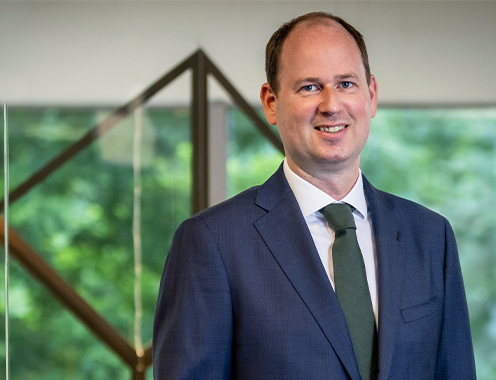
Alain Mulder - Regional Director Europe, Central Asia & Sr. Director of Global Projects at IMA
Alain Mulder is the Regional Director Europe, Central Asia & Sr. Director of Global Projects at IMA® (Institute of Management Accountants), an association focused exclusively on advancing the Management Accounting profession.
Alain discusses his international role at IMA, sharing insights into the key drivers of success and challenges ahead. Alain also references membership/service offerings, revealing the recently launched IMA corporate membership.
Since 2020, EMEA Recruitment has been the European recruitment partner of IMA. Through this partnership, we are pleased to offer a free, three-month IMA membership trial. To find out more/redeem, please visit: emearecruitment.com/pages/institute-of-management-accountants
What excites you about working for IMA?
How entrepreneurial we are. That may be surprising, because IMA is a non-profit organization, but we are very entrepreneurial. Not in the sense that we need to make as much money as possible, but how can we ensure that we have the best offerings for our members?
We are really focused on our mission to empower and connect business professionals. In every meeting, when we discuss ideas or challenges, we always think about how we can deliver value for our members or increase our membership numbers in a specific country to scale our impact. That whole entrepreneurial mindset is something I really like within IMA.
I imagine no two days are the same when you get that insight from different cultures and global exposure.
Indeed. That’s probably the same for many people who work in an international company.
My morning always starts with a little bit of Europe, and maybe I’ll help colleagues in China or work with clients in Kazakhstan. Then, as the day evolves, I end up in the Americas. I just finished a meeting in the US before this interview. Every day, I cover the whole world, as our members are everywhere, so it’s really nice.
What I also like is meeting our members and seeing so many industries come together. For example, we have people who work in the airline industry, others in the food and beverage industry, etc. When you visit their company, they tell you everything and you get a lot of insights from many businesses.
As a non-profit organization, what are the three to five key drivers to success that you monitor?
Number one is engagement. Are our volunteers engaged with IMA? Are our members engaged with our product learning offerings? Are they going to events? Engagement comes first.
Then, of course, we look at growth figures. As a non-profit, we want to make a larger impact in certain countries and globally. I focus on growth, because I strongly believe that when we promote, for example, the CMA® (Certified Management Accountant) program it delivers more value to our members.
It makes me happy if a member meets with a recruiter or a hiring manager and they recognize or recommend IMA. This is what I want to achieve, so this is an indicator that I look at.
I also assess our corporate member growth, which is another area where we can make a lot of impact. When a corporate becomes an IMA member, it can include 30 or more individuals at once, and they get an individual customized, branded micro site to access all online learning and become part of the global IMA community of Finance and Accounting professionals.
We recently launched IMA corporate membership. We had our first large companies, including Novartis, Körber, and others sign up, so I’m really excited about it. I think it is a great opportunity for companies to engage learning within their teams.
Additionally, what I like about IMA as a global association is it can really help you develop your profession. If a company decides to purchase a course on AI, for instance, you can develop those people as well, creating an impact.
To summarize, number one is engagement, and then growth from both the individual and corporate angles.
It's interesting to see the different approaches and the added values that differ slightly. The reach from a corporate perspective can be massive, especially for some of the international businesses you've been working with.
Yes, and you see the macro developments, too. If one company in Europe says they want to sign their team up for the CMA in another country, then I realize that the economic growth or the opportunity for that company is in that region. That is really interesting to see, as well.
Is that something that companies have been quite selective about - it's not been a widespread approach for all levels or specialisms in a company, it's been quite geographically focused?
Yes, sometimes they suddenly move their shared service center to another region or country. In Central Europe, we now see teams signing up. But I also had a company who suddenly said, “Okay, we will do it in Latin America as we have a big team there.” Those shifts and insights are really key.
How do you ensure that your strategic decisions align with IMA’s values and your customer company, client industry, and market demands?
In every meeting, we always have those customer personas and think about what is in it for them.
As an association, you get false leadership, as well; we can get caught up in new ideas, for example. We should do a course on that or write an article on this topic.
Sometimes, we realize a certain topic isn’t that interesting to our members, so we need to align with our mission and strategic priorities. IMA stands out from that perspective; we are very member-focused in all our activities.
What would you say are the three challenges for you at IMA?
There’s one that encompasses everything: staying relevant. We don’t have an issue with it, but in each meeting with a company or member, I always ask them what they think of IMA, what they like and dislike, what skills do you need, and their future perspective. That is continually happening. If we have outdated courses, we lose our relevance.
With the CMA program, we need to ensure that the skills and everything they learn are something they can implement in their role the following day. We must also stay relevant for those at each career stage; someone who just graduated from university or college has completely different needs than a senior executive. Ensuring we have something for all those segments is a challenge and that's something we always work on.
Do you feel that Finance professionals generally have a large interest in staying relevant, training, and developing themselves for their roles?
Yes, Finance professionals are very interested in developing themselves and that stands out. They are very much focused on earning certificates.
They are always looking for other skills, too. When I go to chapter events, there’s always a handful of members approaching me asking if IMA has a course in a specific topic, as it’s something they need within the next year. I like that a lot, as I can text my colleagues about their interests, which is very useful for us. It amazes me how development-focused Finance professionals are.
Has there been a topic where you've not been able to pre-empt a relevant course, or has somebody asked and it's allowed you to create one?
Sustainability and AI are currently very hot topics, and those topics develop quite fast. People used to ask us for an introductory course - the basics of AI or sustainability - and now people want advanced courses.
For example, with sustainability, we did an in-person conference after the pandemic in 2022. We had presentations about sustainability and people were asking what's in it for our company or how should we handle it within our company – basic level.
But, when we had our conference in 2024, people were up to speed with everything; companies are using and implementing it. I see the same now with AI and we are working on more advanced courses in those fields. The next one will launch soon, because people and companies were outspoken about wanting those courses.
How does IMA address corporate social responsibility?
We do it within our organization, for the staff or volunteers. However, where we make the biggest impact is our outreach to the global community.
Corporate social responsibility touches on sustainability and other topics, so by embedding it in our courses, we impact many companies around the world.
We are very much focused on ethics, too, so all our members have to sign up to our ethics framework, which ensures they are ethical at work. We also have an ethics hotline, so if people have an issue, or have second thoughts, they can always reach out to the hotline and ask for advice. Those things allow us to make an impact in the field.
What is the biggest myth about your profession you would like to debunk?
People say Corporate Accounting is boring, and that is not true. I think Corporate Accounting is one of the most exciting careers to have, because you're at the heart of decision-making within companies.
Everything starts with the Finance team; you give input to management, and you are involved in that input. I had a very nice meeting with one of our members, who works for a big pharma company. Some of her family members had health issues, and now as a Finance professional, she is involved in investment decisions to tackle those health issues. That is very impactful. So, Finance professionals can deliver advice for the development of those new things and projects to make a difference.
I'm a big fan of the Shark Tank series. That is basically what Finance professionals are doing; they are looking at business cases and investment decisions at the highest level. So, it’s a really exciting career, especially for those who just graduated.
People should realize there's a big difference between Public Accounting (auditing) and Corporate Accounting, too. Corporate Accountants who look forward are involved in investment decisions, give advice to management, and even become managers within their company. It's an exciting career.
When I graduated, I worked for a very large multi-national. If I wanted to know if something was going to happen within the company, the Finance team was busy. When I saw our CEO constantly going to the Finance and FP&A teams, I knew that something was going to happen, like an investment or a merger acquisition. That really shows how important those teams are and how exciting that career is.
From a study perspective, is there any advice you would have for those looking to choose a study area or enter a Finance career?
I did a presentation recently for the students at Istanbul University. It focused on how to enter the field. Networking was my number one piece of advice. Many students focus on their studies and obtaining high grades - which is completely understandable, and they should continue - but you should also start networking.
Ensure you have a LinkedIn profile to show a recruiter or hiring manager that you are interested in Finance. Go to network events, those can be IMA or other partners or associations, because you get to meet Finance professionals. Besides studies, focus on networking, too.
Do you have any advice or strategies for those who would like to pivot industries?
I meet a lot of talented Finance professionals and see some are only focused on their jobs. They're really talented, but they don’t focus on the big picture. It's also important to understand the whole business and to network.
80% of your work should be doing it well, but spend time understanding the rest of the business - that's where you can really make an impact. What are the priorities of your leadership? What is the company’s strategy? Then think about what you can do in your job to deliver on those priorities. If you start doing that, you really become useful to the leadership team, and then you can eventually step up and join the team.
I also always advise people, students, and young professionals to take the opportunity to sit in meetings with your executive leadership team. Observe them as much as possible, because it's a mini-MBA moment. You can figure out their priorities, and how they handle challenges and negotiations. Those people are senior for a reason.
What would you say is the most rewarding part of your role?
When members tell me that they have grown in their careers. Recently, I met a member in London, and she told me she landed a job within a great company because of IMA’s network. That's why we are here as an association. I like seeing people get promoted and seeing that impact.
Who’s the most inspiring person in business for you?
I read a book, Amp it Up by Frank Slootman. He’s Dutch and the CEO of Snowflake, a cloud-based data storage company, headquartered in the USA.
First, I read it on my Kindle, but it was so good that I purchased a hard copy. It detailed how to bring an entrepreneurial mindset to big corporates. That founder mindset is about creating urgency to deliver growth and maximize returns - not only financial returns.
I still read that book when I have a project to check if there are things I can implement. I advise people to read it if they want to deliver more growth within their company. It was also a Wall Street Journal best seller. He grew up in my neighboring city, which is a coincidence, but it’s a really good book.
Outside of networking and IMA, what are your passions or things that you love to do?
From a personal perspective, I really like Formula One. I’ve been a big fan since 1993. What I really like about it is things obviously go fast, but also the competition level - sometimes it’s not nice, sometimes it is. I love the strategy behind it, too. Are they going to do extra pit stops or are they going to overtake? There's also a lot of data mining behind it, which I really like.
Also, I used to have my own company focused on the Amsterdam region, but I missed the international environment. I get a lot of that within IMA. An international environment is very important to me. What I always tell people is, if you want to understand other cultures, you can go on a tourist trip and sightsee, but when you work somewhere, you delve into it and understand everything much better.
Thank you to Alain for speaking to Georgia Wright, Director in our Finance & Accountancy recruitment division in the Netherlands.
Views and opinions contained within our Executive Interviews are those of the interviewee and not views shared by EMEA Recruitment.
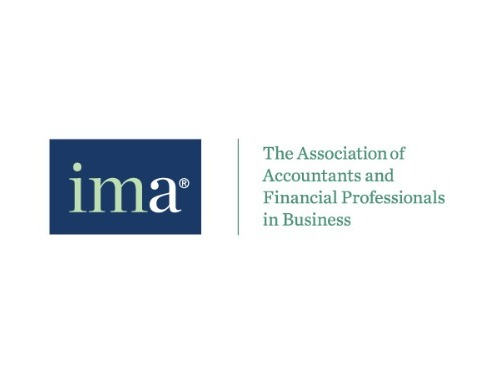
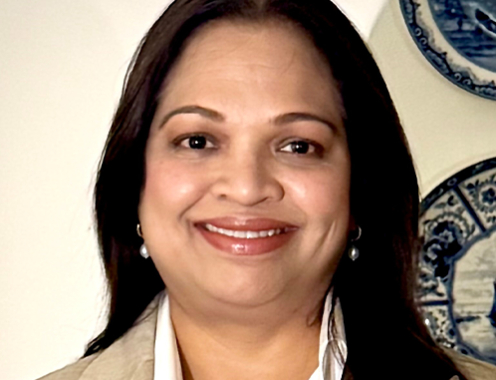
Anita Bhat-Zutshi - Former CFO, Ice Cream Business at Unilever
Anita Bhat-Zutshi is the former CFO, Ice Cream Business at Unilever in Rotterdam. During her career, she has spent over 25 years with the organization, having started out in Audit and Treasury.
Anita explains how she builds psychological safety in her team, shares the epiphany that drives her philosophy, and offers advice for women in senior Finance roles.
What have you learnt as a leader over the past 12 months?
The biggest learning is that I need to go to where people are in their thinking and not try to lift them to think more like me. Everyone has different starting points, different aspirations, and motivations and I should not just tolerate but truly embrace these differences.
My focus then shifted from, “Why are they not more like me?” to, “Strength lies in differences – not in similarities.” I started celebrating diversity of gender, thought, personality, etc. in my teams, actively seeking it.
I also shifted my leadership style from a 3D (direct, drive, deliver) approach to a 3E (envision, empower, energize) focus – a style I have used over the past few years as a global leader.
It’s important to nurture great talent density in the team and not have a cookie cutter approach based on your own self.
What’s your philosophy on team building, and how do you create an environment where individuals feel motivated and empowered to perform at their best?
I have led large, global teams for the past decade, and firmly believe that honesty and vulnerability promote trust, which - alongside diversity, inclusion, and psychological safety - builds high-performing teams.
As a leader, balancing empathy and drive with talent density, fostering honest yet constructive feedback is essential. I believe in psychological safety by encouraging diverse views, sharing both successes and failures equally, and seeking constructive feedback, including for myself.
I am often an open book, sharing my own challenges and learnings, which makes others feel comfortable doing the same. I make a point of giving my opinion last to ensure other team members can freely contribute; too often, leaders speak first, and through that set the tone of other responses, then we all lose out.
To me, diversity goes beyond gender and includes diversity of thought, leadership style, and personality among others. It's important to value different perspectives and support talent growth, even if it means letting key talent move on to better roles and different experiences, no matter how much you want to keep them.
I am proud of the teams I've built and am happiest when they thrive independently, occasionally remembering me on key occasions with a kind note or text. This, for me, signifies true leadership success.
What role does collaboration play in driving financial success? And how do you ensure Finance is seen as a strategic partner to other departments?
For Finance to be seen as a strategic partner, it must behave as one. For this to be true, there is an important shift from control and compliance to deep understanding of the business, strategy, and on what sits behind the numbers.
Finance touches all aspects of a business, so you must collaborate, constantly build your knowledge through others, understand the drivers behind each part of the business, be driven by value creation, and actively manage disruption to create sustainable value in the long term.
What is the biggest myth about your profession that you want to debunk?
A lot of people look at the role of a CFO as a dream role – which it is. Equally, a CFO role at whatever level is extremely demanding. There is a lot of blood, sweat, and sacrifices needed. At any CXO level, you need to have great passion, resilience, and tremendous energy to sustain not only your own motivation, but of those around you. This is especially true in the tougher times and there are a few of those! The number of hours per week or a work/family balance becomes irrelevant, to be honest – it’s a 24/7 role. Trust me!
Further, to be successful in these roles, it has nothing to do with your qualifications or what you have achieved – it’s about the future. You need to constantly learn, unlearn, relearn, and reinvent yourselves in the journey to get there and stay successful.
To debunk any myth about Finance as a profession – yes, maybe we love a spreadsheet, we love structure and process, but our value is so much more than that. Listen to your Finance partner, bring them in on your business strategy - they are your best friends!
What risks have you taken throughout your career and how did they help you get to the level you are at?
The most important risk I have taken is to be part of challenging assignments, chasing audacious goals, taking the unsexy career path - which naturally pushed me outside my comfort zone, giving me invaluable experience, while building self-awareness and self-confidence. With these diverse experiences under my belt, I feel confident taking on any task now; I know I will be able to see it through.
What was the most unexpected lesson you learned in your career so far?
In my mid-20s, as I was starting my career and married life, I was diagnosed with a chronic illness, which was devastating to me. I remember brooding, “why me?”, till I had an epiphany that thankfully it was me and not anyone else in my family. I had always struggled to find meaning in my existence as a middle child till then, but in that moment, I realized that my purpose was not to be entitled but to be in service. A philosophy that I live with to this day.
I always believe that I am in service of the business, my team, my friends and family - this guides my approach to work and life to this day.
If you could go back and give your younger self some career advice, what would it be?
I was a fearless girl. My mother nicknamed me after the first woman who fought for India’s independence – Rani of Jhansi. As a young girl, with the naivete of youth, I had strong courage of conviction with a desire for perfection, which made me very stubborn and fiercely independent, placing a lot of pressure on myself, especially as a young working mother.
In hindsight – with years of experience and some wisdom – I would like to tell that young girl that there was no need to be a super woman, to have the courage to stand up, with the wisdom to stand down. Life is all about striking a balance and interdependence.
As a female leader in a traditionally male-dominated space, how do you champion female empowerment in the workplace?
What initiatives have you led or supported to promote women in leadership roles?
As one of the few female Finance leaders in any room, I am acutely aware that I am in a unique position to actively change the status quo, and champion female empowerment and representation. These have always been close to my heart, and I do take this responsibility seriously.
- As a role model, I help women see the art of possible with my journey. I generously share my experiences including failures with them, helping them navigate similar challenges in their careers – learning from my experiences.
- As a sponsor, I have very often taken calculated risks on key female talent and have easily achieved 50% gender diversity in my leadership teams for the past ten years. These women leaders have thrived, been successful on their own, moving onto many CFO/leadership roles.
- As an active mentor and coach to many female leaders including outside of Finance, I make myself available when they reach out. This is my way of paying it forward.
- As a female representative around the table, my philosophy is to be the voice of reason and call out bias when I see it. I strongly believe we do not need gender quotas, but do need strong advocates and courageous leaders to uproot systemic and largely unconscious bias.
I’d like to also point out that at least two of my big career moves was enabled by two men, who saw the potential in me and enabled a level of flexibility at a time when it was very rare. So, everyone has potential to enable and uplift.
What is your top piece of advice for women pursuing a career in Finance?
Unlike Marketing or HR, which are more women centric, it is true Finance is a tough profession for women. This is reflected in the fact that women occupy less than 15% of CFO roles in top organizations in the world. It will take us more than a century to get gender parity.
In this context, my advice is for women who are in that top 15% already: Please actively lift other women, proactively mentor, coach and support them. We need to celebrate and advocate for our sisterhood, which will be the biggest gift we can give each other. I don’t see that happening often enough.
For all women in Finance: Believe in yourself, keep the fire of ambition burning, actively seek mentors and sponsors, learn the rules and play them well.
Who is the most inspiring person in business for you and why?
Indra Nooyi – former CEO of PepsiCo - has been a truly inspiring role model for me. Her extraordinary success becoming a global business leader of iconic organizations, delivering performance with purpose, while breaking the barriers of gender and race, and remaining true to her roots has been a source of deep inspiration.
I have watched many of her public interviews where she does not shy from sharing her vulnerabilities and the impact of her choices, which working women of color around the world like me can so relate to.
I recently finished reading her book, My Life in Full, which in my view is a must read for all working career-focused women. I hope I get the opportunity to meet her at least once in life.
What is the one book, podcast or external resource you would recommend to all?
I believe that we need to be the change that we want to see. I first read The 7 Habits of Highly Effective People in business school (30 years back), but its wisdom on self-development and leadership stays true to this day.
Recently, I came across America Ferrera’s TED Talk My identity is a superpower – not an obstacle – it’s a real tribute to embracing who you truly are. Its hugely moving and inspiring and there was so much that I could relate to. I would recommend it as a watch.
If leadership styles were ice cream flavors, which flavor best represents your leadership approach and why?
I believe in diversity and lots of inclusion – hence my ice cream flavor would be unique, bold, and innovative. Variety, as you know, is the spice of life!
What’s the last thing that made you smile?
Watching little kids perform makes me shed tears of joy with a smile. This happens every single time. There is something about their innocence, camaraderie, and earnestness to the performance at hand that brings back the purest of emotions. I love the feeling it evokes in me.
Thank you to Anita for speaking to Georgia Wright, Director in our Finance & Accountancy recruitment division in the Netherlands.
Views and opinions contained within our Executive Interviews are those of the interviewee and not views shared by EMEA Recruitment.
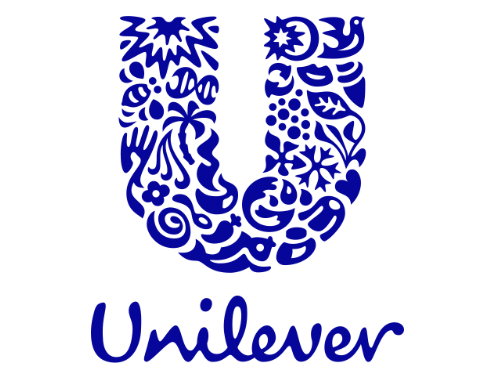
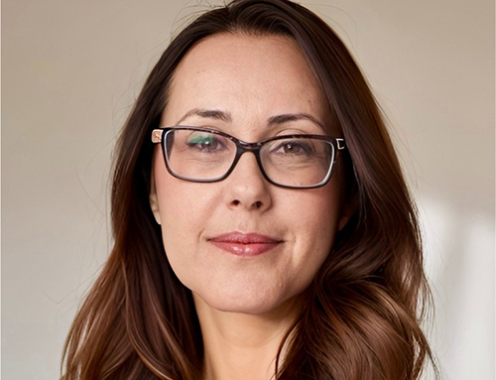
Inbal Orbach - Vice President, Global Head of FP&A at Lonza
Inbal Orbach is the Vice President, Global Head of FP&A at Lonza, where she leads financial strategy and execution for one of the world’s top suppliers to the pharmaceutical and biotechnology industries.
In this interview, Inbal discusses her approach to driving performance and innovation within her team, the role of AI alongside human expertise, and Lonza’s efforts to support women in Finance.
What are the key strategies you implement to drive performance within your FP&A team?
To drive performance, I set clear objectives aligned with the company's broader goals, maintaining a unified direction. Data-driven decision-making is central, supported by robust data analysis. Regular performance reviews help us stay on track and make necessary adjustments.
Leveraging the Lonza Engine enhances operational efficiency, strengthens customer proximity, and drives sustainable value creation. Maintaining close collaboration with the business ensures transparency, enabling swift risk identification and mitigation.
What performance metrics do you consider most critical for FP&A, and how do you ensure your team stays aligned with these metrics?
Critical metrics include budget variance, forecast accuracy, cost efficiency, and revenue growth.
To ensure alignment, I communicate these metrics clearly and integrate them into performance evaluations. Regular check-ins help track progress and maintain focus. Operational efficiency and customer proximity are key components of our performance framework.
How do you ensure effective collaboration between FP&A and other departments to support overall business performance?
Collaboration is fostered through regular interdepartmental meetings to discuss financial performance and upcoming projects. Open communication channels encourage transparency and information sharing. Integrating planning processes and forming cross-functional teams ensures diverse perspectives. The organizational structure, including Integrated Biologics and Advanced Synthesis, further enhances operational efficiency and customer proximity.
What initiatives do you have in place to develop and retain top talent within your FP&A team?
Talent development is a priority, achieved through professional training, mentorship, and career pathing. Recognizing outstanding performance is key, alongside offering hands-on learning experiences, such as job shadowing and complex projects.
Lonza’s Finance Academy provides a structured training calendar, a Finance Competency Framework, and easy access to training resources, ensuring clear career pathways and growth opportunities.
What future trends do you see in AI and machine learning in FP&A, and how are you preparing to leverage them?
AI’s potential in financial processes is actively explored through investments in advanced AI tools and team training. A commitment to innovation ensures staying ahead by continuously integrating emerging technologies.
Recent pilot programs have demonstrated a significant reduction in manual reporting efforts, allowing the team to focus on higher-value strategic activities.
How do you balance AI and machine learning with human expertise in FP&A?
AI excels in data processing and pattern recognition, while human expertise is essential for strategic decision-making. The team is trained to interpret AI-generated insights, ensuring accuracy and relevance.
Ethical considerations are paramount, and guidelines are established to maintain transparency and trust.
By combining AI-driven financial modeling with human judgment, we aim to improve forecasting precision while maintaining strategic oversight.
How do you foster a culture of innovation and continuous improvement within your FP&A team?
A culture of innovation is encouraged by promoting experimentation and learning from failures. Open idea forums and continuous learning opportunities keep the team updated on industry trends. Recognizing and rewarding innovative thinking is crucial. Innovation is embedded in strategic priorities to drive continuous improvement.
A recent initiative allowed team members to propose automation ideas, leading to the successful implementation of a new leadership performance dashboard, reducing slide preparation time, and allowing faster data and insights generation.
What role do mentorship and sponsorship play in advancing women's careers in Finance? Have you had mentors or sponsors who impacted your career?
Mentorship and sponsorship have provided me with guidance, advocacy, and opportunities. Offering the same support to others is a priority. Lonza promotes structured mentorship programs and diversity initiatives to promote career advancement for women in Finance.
I have personally benefited from a sponsor who advocated for my leadership development, which directly influenced my career progression.
How do you manage work-life balance, and what advice would you give to other women in Finance?
Work-life balance requires prioritization, time management, and setting boundaries. My advice is to prioritize wellbeing, seek support, and establish clear work-life boundaries.
One effective practice is leveraging technology to improve efficiency, allowing for better time management and ensuring critical tasks are completed within work hours.
Are there initiatives supporting women in Finance? Can you share some success stories?
Lonza runs several initiatives to support women in Finance, including mentorship programs, networking events, and diversity committees. These initiatives have enabled many women to advance to senior leadership, fostering inclusivity and collaboration within the organization. Our commitment remains strong in ensuring a supportive and equitable environment for all.
Thank you to Inbal for speaking to Meriel Graham, Director in our Finance & Accoutancy recruitment team in Switzerland.
Views and opinions contained within our Executive Interviews are those of the interviewee and not views shared by EMEA Recruitment.
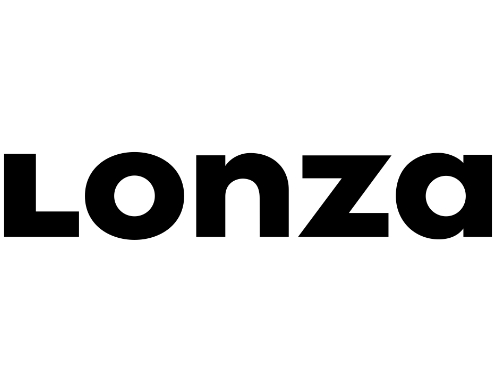
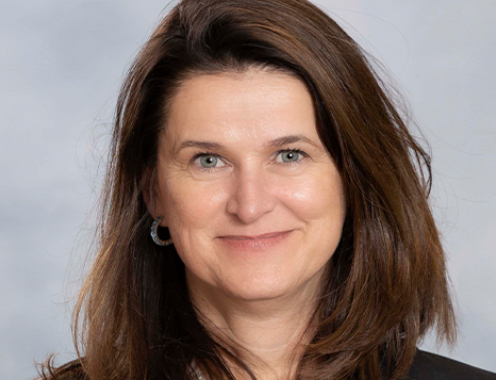
Marta Van Damme-Pilzys - Global Strategy Portfolio Execution Leader at Cargill
Marta Van Damme-Pilzys is the Global Strategy Portfolio Execution Leader at Cargill, based in Amsterdam.
Over a 24-year tenure at the international food corporation, Marta has successfully managed transformative process optimization initiatives to enhance efficiency and effectiveness. She’s also a member of topvrouwen.nl, an initiative to support greater diversity in Dutch boardrooms.
In your opinion, how can leaders create diverse teams?
Leaders can create diverse teams by hiring people with different and complementary skills.
Empower them to succeed and fail, as mistakes are learning opportunities. Be humble, open, and transparent. Treat everyone equally, but address underperformance promptly. Create a safe and enjoyable environment where people feel valued and can grow.
From your perspective, what opportunities does the Dutch business environment offer to employees at Cargill?
The Netherlands offers a variety of talents and innovative thinking. It's a great place for business due to clear regulations and a collaborative environment. The Dutch are creative problem-solvers, and the country is favourable for investment.
You’ve progressed at Cargill throughout 24 years. What risks have you taken to reach the level you’re at today?
Taking risks involves embracing change. Moving to the Netherlands was a bold move, especially with language barriers and managing an older team at the start of your career.
It's important to recognize your capabilities and take opportunities, even if they push you out of your comfort zone. Always be yourself and know yourself. Think big, start small, and execute fast is what keeps me moving forward!
You transitioned from Finance into a Transformation role with financial aspects. When did you decide to make that move and what was it like for you?
In 2014, one of our Managing Directors asked if I wanted to help drive Transformation. He saw my potential and believed in my capabilities. This opportunity - working with an external consultant - was a game-changer. It included many of hours of intense internal training, expanding my knowledge beyond Finance to the entire business.
Initially, I was insecure, but diving into the role helped me grow rapidly. This experience pushed me out of my comfort zone and allowed me to oversee Commercial, Procurement, and Production. It was a huge opportunity that connected my financial expertise with broader business insights.
Embrace such challenges - they are the key to growth and transformation.
How do you see the role of a global Transformation & Strategy leader changing with the advent of AI and automation?
AI and automation are revolutionizing how we analyze data and manage businesses. They help us identify issues and opportunities faster, bringing us closer to market trends.
While some jobs will be replaced, new roles will emerge to manage AI. Follow the innovation and adjust smartly and smoothly.
Investing in technology and upskilling employees is crucial. Embrace this change - it's the future, and it will make us more effective and innovative.
Sustainability is another hot topic. I’m interested to hear about the main challenges that Cargill faces regarding sustainability.
Cargill focuses on reducing its environmental footprint, investing in green energy, and ensuring ethical practices in its supply chain. Collaboration with our customers, farmers, and other companies and transparency are key to addressing sustainability challenges.
In your experience, how do you ensure that your strategic decision-making aligns with both the company's values and the market demands?
Align decisions with company values, such as feeding the world sustainably. Adjust the portfolio to meet the market needs by reducing sugar levels, as an example.
Strong values guide daily choices and ensure long-term success.
What are some of the main values that you share with the company?
At Cargill, our word is our bond. We put people first, embrace accountability, and foster a sense of ownership.
Cargill is integral to our daily life. You might not know, but you start and finish a day with Cargill (for example, the ingredients in your toothpaste). Being part of a private company that impacts the world so profoundly is truly inspiring.
*Please Note: Marta was the Global Strategy Portfolio Execution Leader at time of recording.
Thank you to Marta for speaking to Bradley Saywell, Consultant in our Finance & Accountancy recruitment division in the Netherlands.
Views and opinions contained within our Executive Interviews are those of the interviewee and not views shared by EMEA Recruitment.
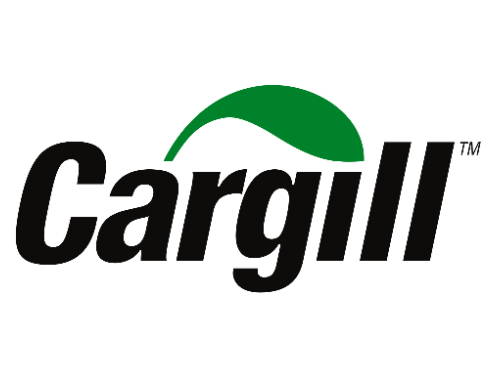
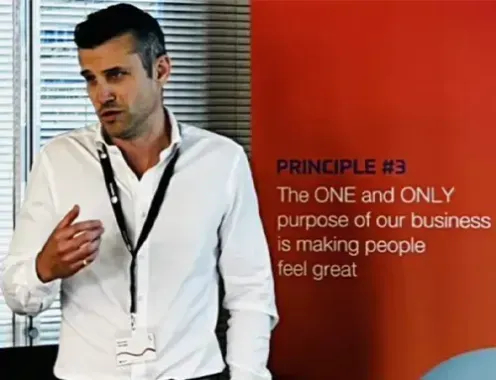
Hannes Wengle - Deputy Chief Procurement Officer at Selecta
Hannes Wengle is the Deputy Chief Procurement Officer at Selecta, a leading food technology and vending specialist headquartered in Switzerland. Hannes leads and drives the performance of 16 local Procurement departments across Europe while fostering high-level global interactions with A-brand suppliers.
In this interview, Hannes discusses the evolution of the Procurement function, along with the technical fundamentals, interpersonal skills, and mindset required to excel.
He also shares an insight into Selecta’s sustainability initiatives, the challenges ahead, and his approach to developing innovative and diverse teams.
What advice would you give to somebody starting in Procurement today?
Procurement has transformed dramatically over the past decade, evolving from a back-office cost-saving function into a strategic enabler of organizational success. Today, Procurement plays a critical role in ensuring competitiveness, sustainability, resilience, and adaptability in fast-changing environments. Supplier relationships have also shifted, focusing less on cost-cutting and more on building long-term, value-driven partnerships. With its growing influence, Procurement now offers exciting opportunities for growth and innovation, making it a compelling career choice.
For those considering starting in Procurement, a strong educational foundation is essential. The complexity of the field demands higher education - studying Economics is particularly relevant, though I’ve also seen professionals with Psychology backgrounds excel in Procurement.
Beyond academics, mastering the technical fundamentals is crucial: selecting suppliers, negotiating contracts, analyzing costs, and understanding industry dynamics. These are skills that can be taught and developed over time.
What’s harder to teach, however, is personality. Successful Procurement professionals are analytical, adaptable, and excellent communicators. They balance deep dives into data with high-pressure negotiations, thriving in the duality of precision and unpredictability. If this mix of technical mastery and interpersonal skills excites you, Procurement can be a highly rewarding career. But, if such contrasts feel overwhelming, it’s worth reflecting carefully before diving in.
What strategies do you use for developing innovative and diverse teams?
The most important factor in developing innovative and diverse teams is attracting the right people while actively minimizing biases during the hiring process. In my view, affinity bias is particularly critical to address, as it leads to overestimating candidates with similar backgrounds or interests. This bias can hinder diversity and innovation from the outset. Building a broad talent pool that includes individuals from diverse backgrounds, ethnicities, and experiences is essential to create a foundation for success.
However, recruitment is only part of the equation. Retaining top talent requires creating an environment where people can thrive. This means fostering a culture of continuous learning, development, and empowerment. While general theories about enrichment and empowerment are valuable, I believe the approach must always be tailored. Each individual has unique needs, and what motivates one person might not resonate with another. Leaders must deeply understand their teams, adapting to their dynamics and individual preferences.
By providing a positive, supportive environment where everyone feels valued and appreciated, leaders can not only enhance productivity but also build a sense of belonging. This reduces employee turnover and ensures the team remains engaged, innovative, and diverse.
What is the most unexpected lesson you have learned in your career so far?
In fact, I’d say the unexpected is the rule, not the exception. "Expect the unexpected" is a mindset that makes perfect sense when working in Procurement. Let me share a few examples:
- People and relationships matter more than processes. We tend to overestimate the importance of processes. During times of change, like the COVID-19 pandemic, a perfect process won’t secure your supply chain, but strong, trusted relationships with suppliers will.
- The value of frontline contact. It's easy to assume we know better from our positions high up in the company. What has always been inspiring, though, is regular communication with frontline workers. Their insights often bring fresh perspectives that help solve problems.
- The courage to simplify. We often feel that complexity is a necessity. What I’ve learned, however, is that a simpler approach can often be just as effective and much easier to implement.
- Rethinking the established. It’s common to overvalue existing practices, but I’ve found that challenging legacy processes and sometimes disrupting established ways of working can lead to remarkable improvements.
Starting out in Procurement can be tough, especially when you’re new to the field. It’s not easy to challenge the status quo when you’re just starting. Newcomers often bring fresh ideas and mindsets that can be incredibly valuable. They might see areas for improvement that have gone unnoticed by others who’ve been entrenched in the same way of doing things for years. It’s important to remember that just because something has worked for the last decade doesn’t mean it couldn’t work better with a new approach.
These lessons have been key to my growth in Procurement. It’s about staying open to change, learning from others, and having the courage to question and improve processes. That mindset has shaped my career and continues to drive me forward.
What risks have you taken throughout your career and how did they help you get to the level you are at?
Throughout my career, I’ve taken several risks that have helped shape my approach and contributed to my success. One of the earliest risks I took was shifting my perspective on supplier relationships. I recognized that long-term partnerships with suppliers create far more value than simply negotiating price and quality or switching suppliers every year. At the time, the value of flexibility wasn’t as clear as the benefits of these strategic partnerships. This perspective was not always appreciated, and I faced opposition, but I stood firm, despite some doubts. In hindsight, that decision proved valuable, particularly when securing the supply chain in unforeseen situations.
Another risk I took was challenging legacy processes. While I always carefully assess whether change is worth the resistance and potential risks, in most cases, it has paid off. I’ve encouraged stakeholders to question the status quo, asking, “Why is this done the way it is?” This simple question often sparks innovation and drives efficiency.
More recently, embracing data-driven decision-making has been a significant shift in my career. The rise of big data and AI presents challenges but also huge opportunities. For example, defining assortments using data within seconds, rather than relying on opinions or gut instinct, was initially daunting. However, I view this as an opportunity, provided we balance technology with human insight. It’s essential to maintain a man-in-the-loop approach, ensuring that decisions are not driven solely by historical data but by a combination of both data and expertise.
What are the key challenges Selecta faces around sustainability?
Carbon accounting is undoubtedly a significant challenge in our sustainability efforts. We are constantly navigating evolving regulations and staying ahead of trends in carbon commitments and sustainability reporting frameworks. Carbon reduction remains a critical focus, requiring substantial resources: financial investment, skilled expertise, and well-established processes that meet the standards of our leading clients.
Another challenge is staying at the forefront of sustainability innovation. Initiatives like sustainability-as-a-service and Selecta Eco Joy have been steps in the right direction, but we must continue exploring new approaches to ensure we remain ahead of the curve. The goal is not just compliance but creating long-term, unique value for our clients.
The entire ESG (Environmental, Social, and Governance) landscape is becoming more critical than ever, particularly within Procurement. As laws tighten, the role of Procurement professionals in driving ESG initiatives will continue to grow, and it’s no longer just an option - it’s a requirement. Procurement must take the lead in these areas, ensuring that sustainability is embedded into every aspect of the procurement process. This is a key area where Procurement can have a direct impact on both compliance and business value. As ESG becomes a central argument for sales and business success, it’s crucial that Procurement is fully aligned and proactive in embracing these responsibilities.
Personally, I have a strong passion for sustainability, and I firmly believe that Procurement is in a unique position to drive meaningful change in this space.
What are the current recruitment challenges that you face?
Attracting top talent is one of the key challenges we face today. It requires a deep understanding of what the younger generation seeks from an employer and a company.
Salary is no longer the sole focus - it’s no longer about just negotiating a number. Instead, candidates today are more interested in flexibility, such as reducing their workload, working from different locations, and achieving a better work-life balance. While salary remains important to cover basic needs, the primary conversations now center around finding meaningful work and a clear sense of purpose in their roles. The company’s mission and values must align with the expectations of this emerging workforce.
Providing clear opportunities for career growth and professional development is also crucial. This can include access to training programs, mentorship, and well-defined career progression pathways. In addition, flexibility in work arrangements has become a significant priority, with top talent placing high value on flexible schedules that allow them to balance personal and professional commitments. Furthermore, having a strong employer brand is essential. Effectively communicating the company’s values, culture, and opportunities positions the organization as an employer of choice for talented individuals.
What advice would you give to someone moving to Switzerland?
Rule number one – you need to love chocolate and cheese! As a Swiss native who has lived and worked abroad in various countries, I’ve experienced many cultures and believe the key to thriving in Switzerland is to understand and appreciate its positives.
Switzerland is clean, well-organized, structured, efficient, and safe. Contrary to some stereotypes, it’s also open to new experiences and people.
Most Swiss people speak excellent English, which helps ease communication. However, it’s important to earn this openness by respecting local cultural norms. Swiss culture values punctuality, privacy, organization, and adherence to rules. Embracing these aspects will help you integrate more smoothly.
In my view, Switzerland is a wonderful country for you and your loved ones, offering a high quality of life and a welcoming environment for those who appreciate its unique charm.
Thank you to Hannes for speaking to George Weemes, Associate Director in our Procurement & Supply Chain recruitment team in Switzerland.
Views and opinions contained within our Executive Interviews are those of the interviewee and not views shared by EMEA Recruitment.
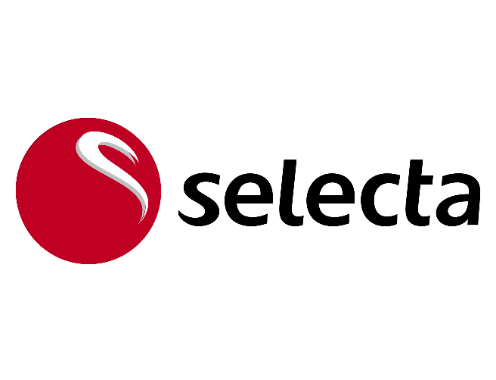







You can also use your social account to sign in. First you need to:
Accept Terms & Conditions And Privacy Policy